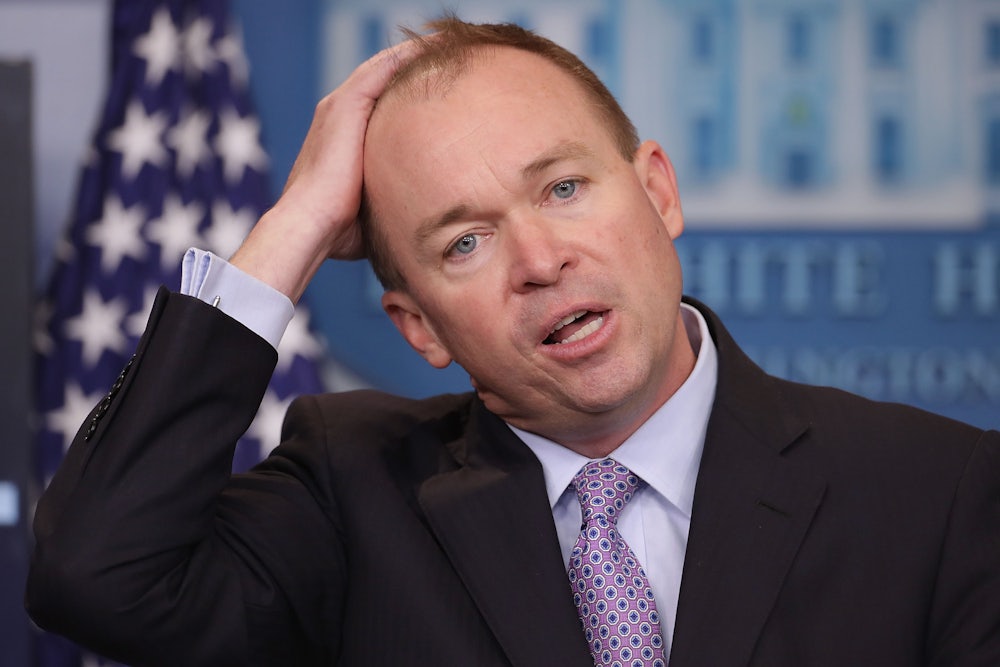Republicans have been selling their tax reform plan on the promise that it will be revenue neutral, claiming that any revenue losses from lowering tax rates will be off-set by deductions and faster economic growth. But OMB Director Mick Mulvaney has admitted that this might not be possible. In fact, going further, Mulvaney argued that higher deficits may be necessary to spur growth in the first place.
“I’ve been very candid about this,” Mulvaney told Bloomberg. “We need to have new deficits because of that. We need to have the growth. If we simply look at this as being deficit-neutral, you’re never going to get the type of tax reform and tax reductions that you need to get to sustain 3 percent economic growth.”
The Trump administration is in effect channeling Keynesian economics, but of a special sort. While Keynesian economists do urge using deficits to re-start stalled economies, using them to push the economy during a period of expansion is very risky. The danger is that when the economy does enter a real recession, it will take on even bigger deficits. Mulvaney’s policy will make dealing with the next, inevitable recession much harder.
There’s also the question of whether Trump can get his party to go along with this. Since the era of Ronald Reagan, of course, most Republicans have been fine with deficits when they are in power. But there are enough deficit hawks in the Republican camp, including Senator Bob Corker, to make this another issue where the Republicans can’t get anything done, despite controlling all three branches of government.
